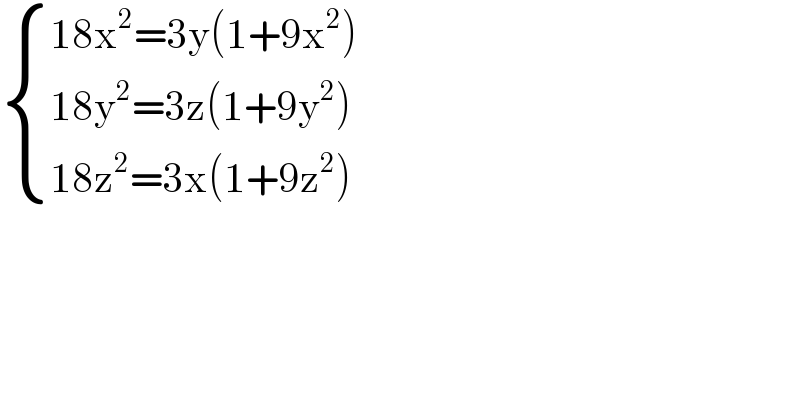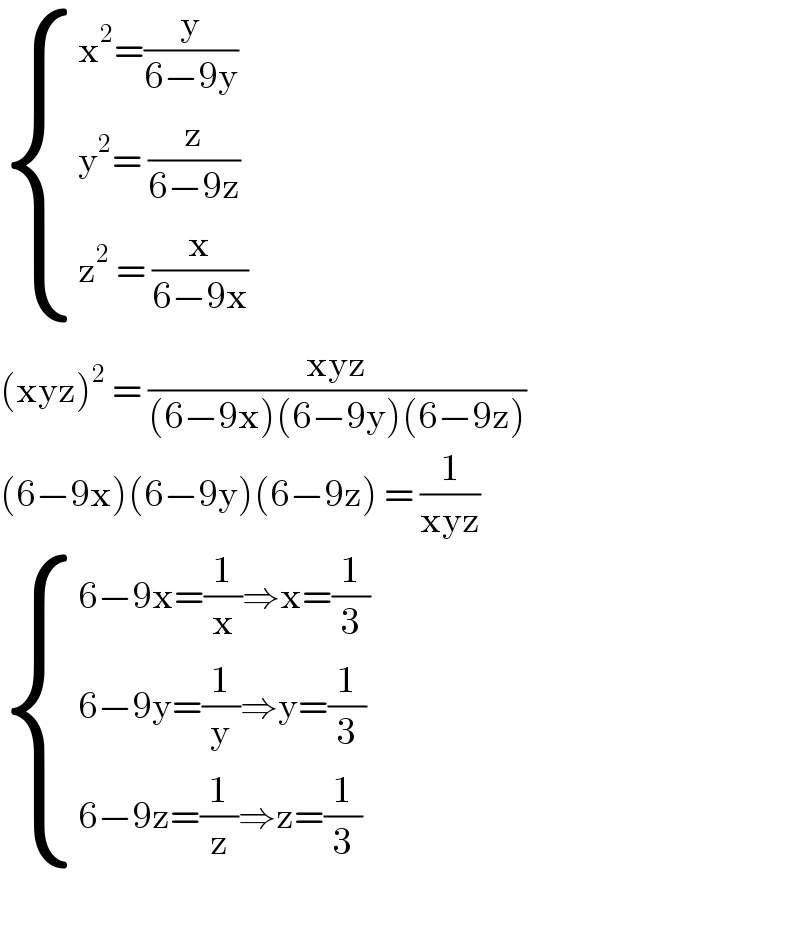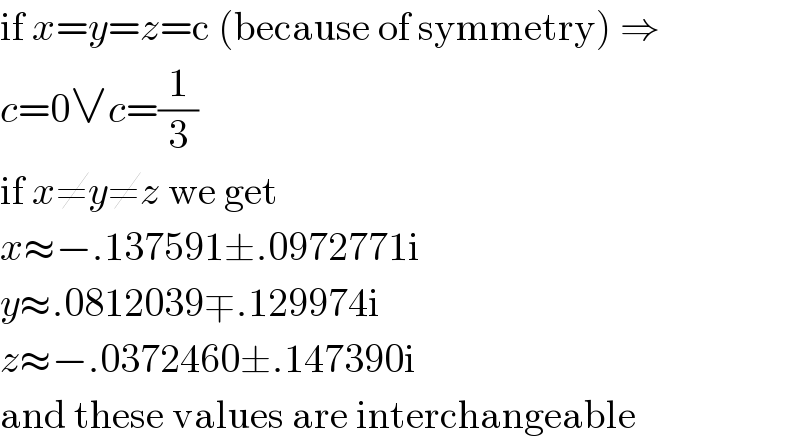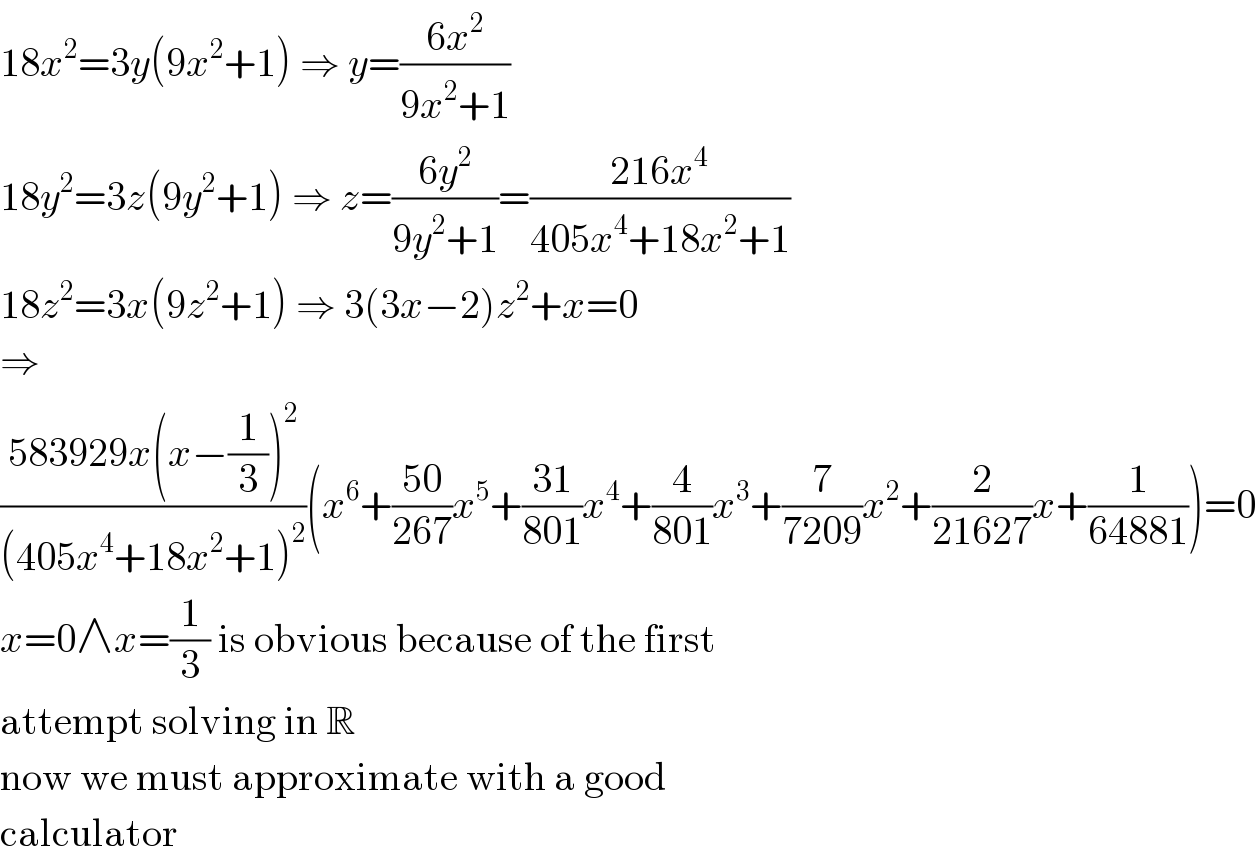
Question and Answers Forum
Question Number 93138 by i jagooll last updated on 11/May/20

Answered by john santu last updated on 11/May/20

Answered by MJS last updated on 11/May/20

Commented by i jagooll last updated on 11/May/20

Commented by MJS last updated on 11/May/20

Commented by i jagooll last updated on 11/May/20

